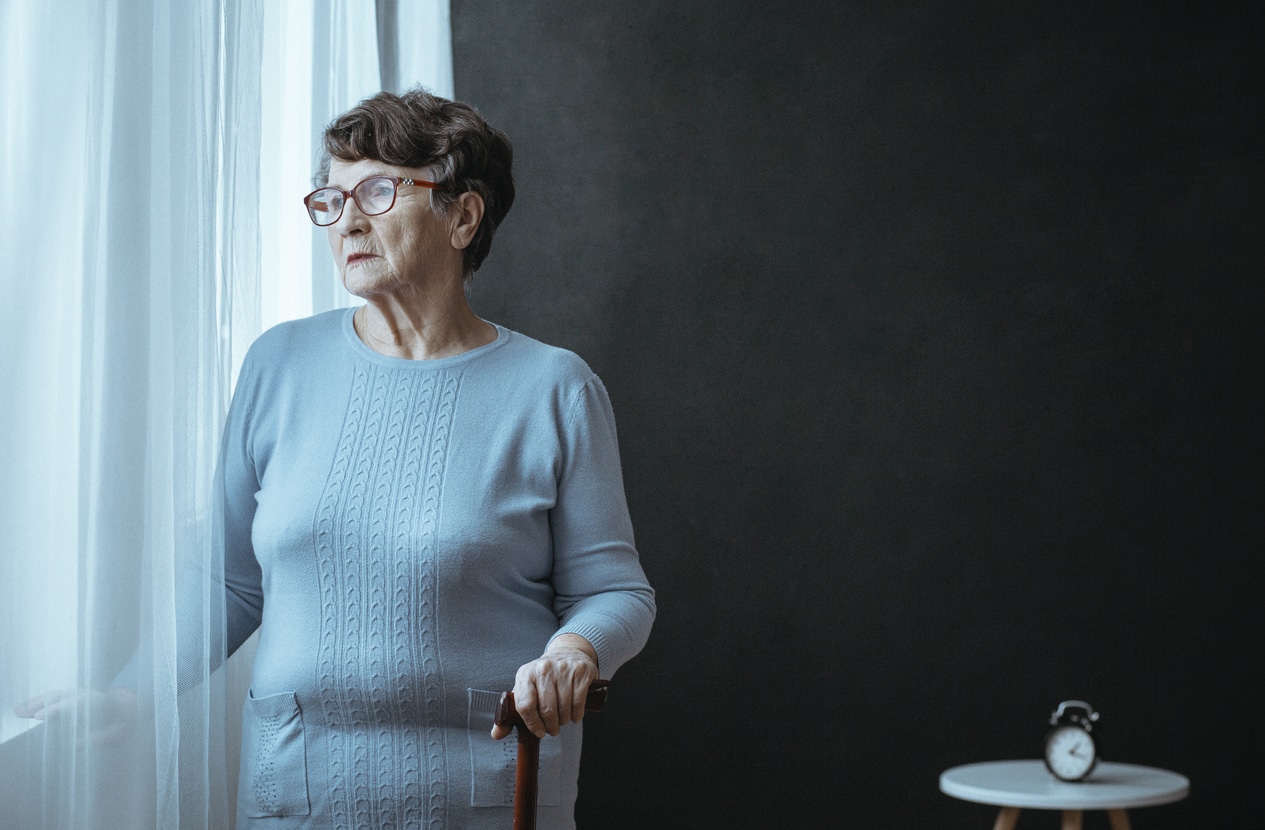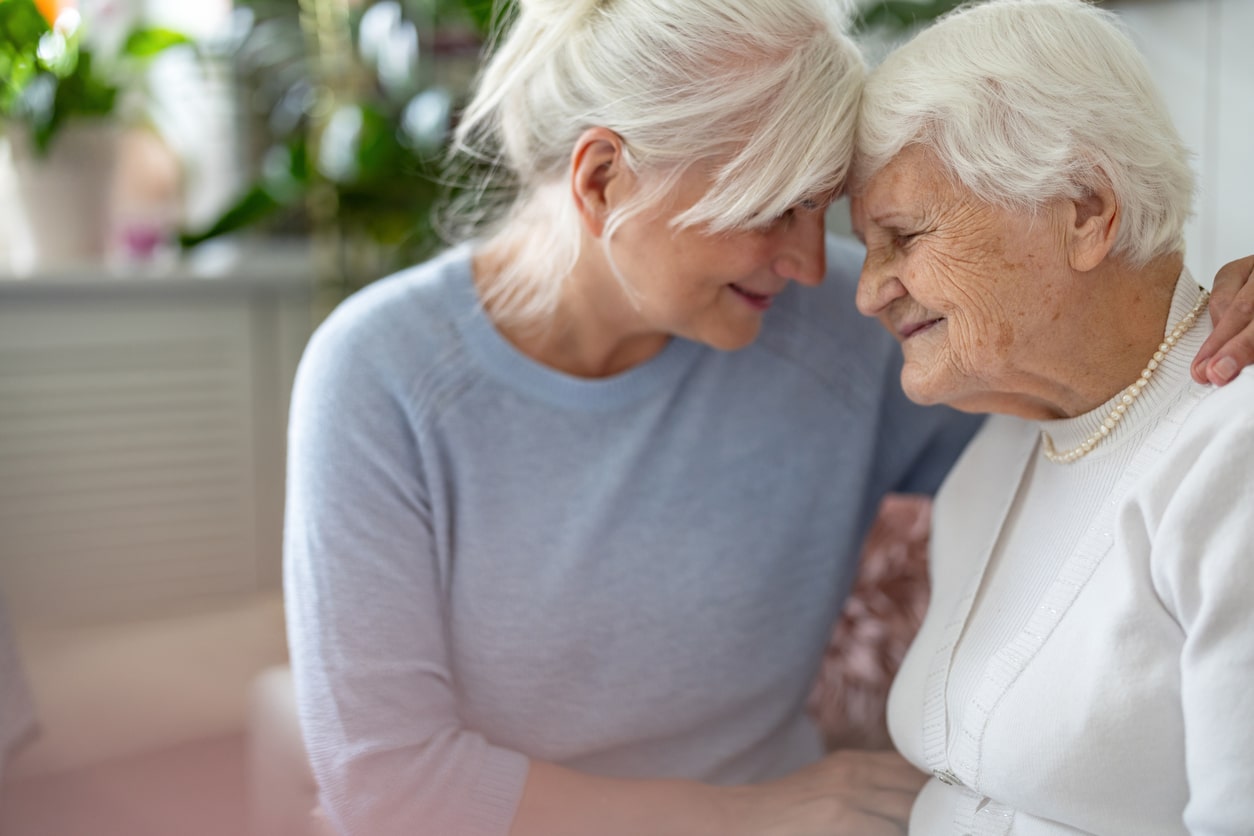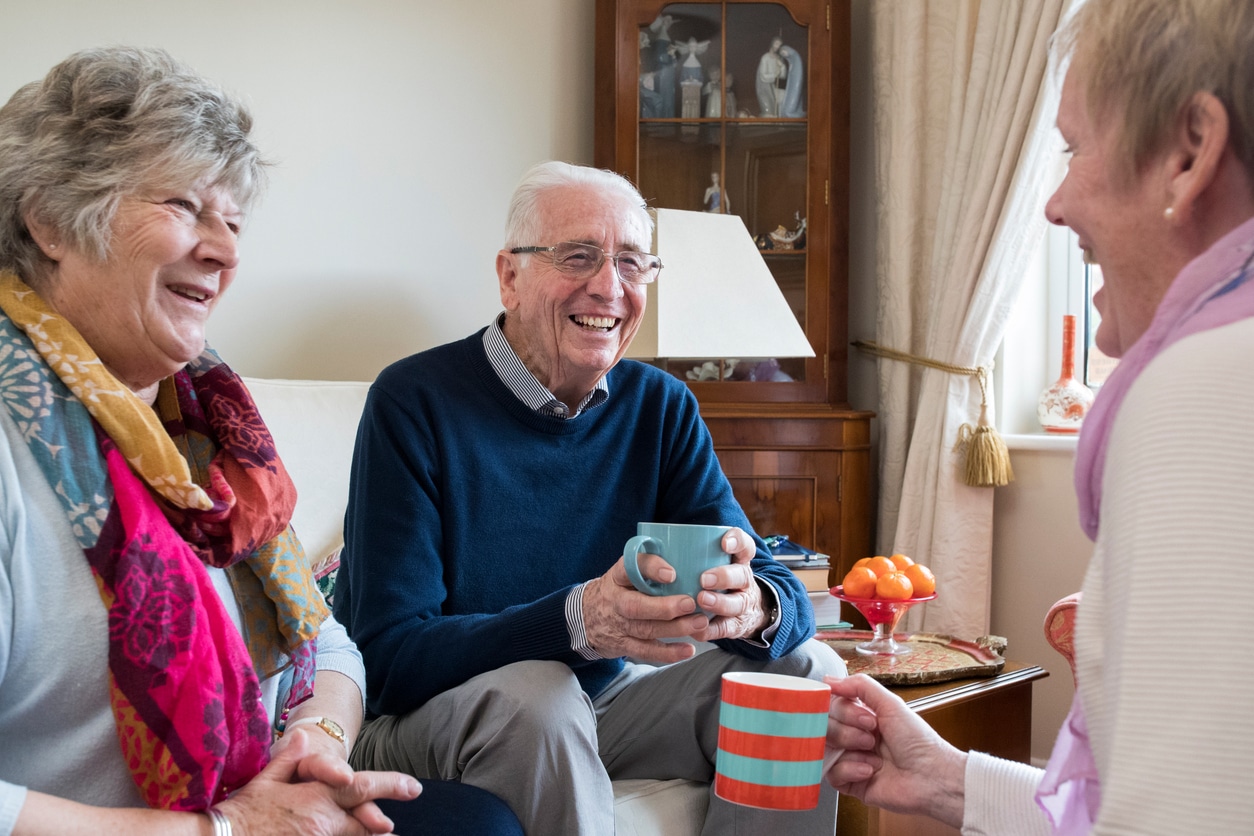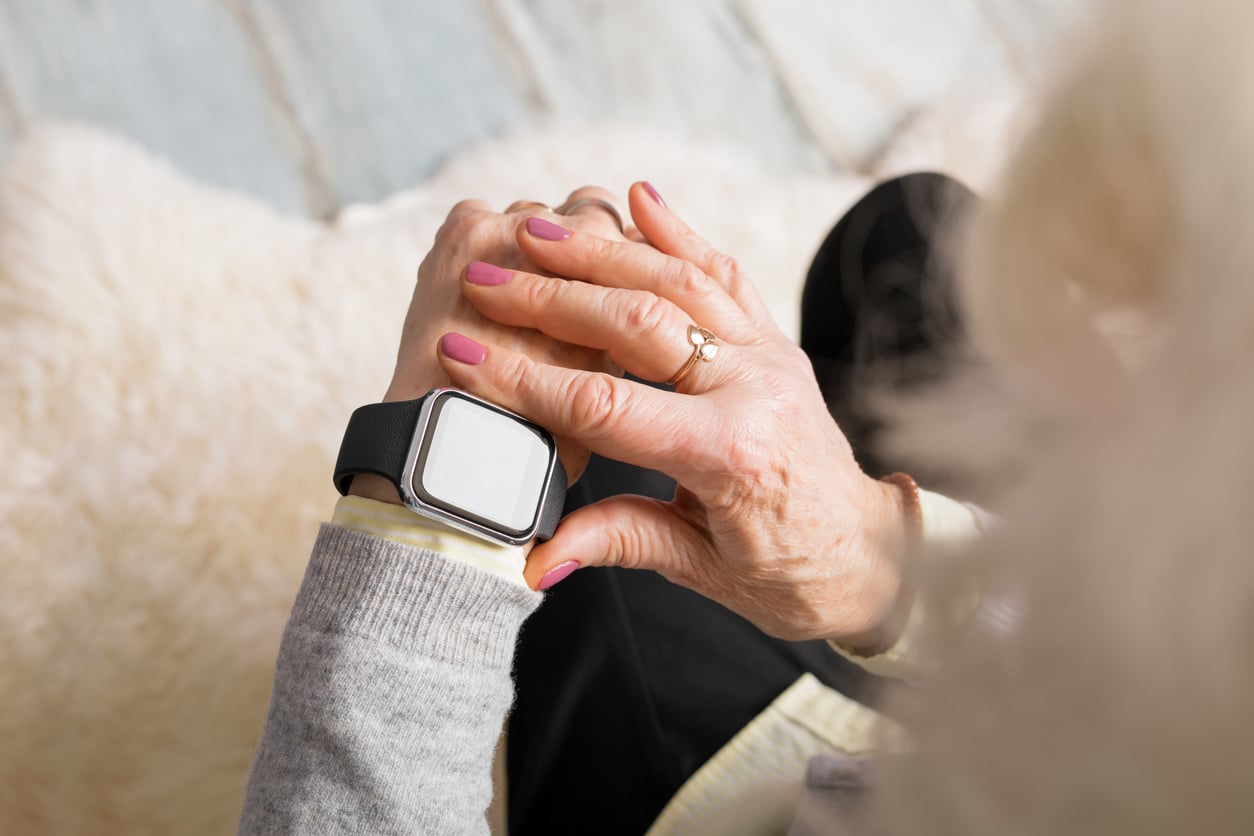Portrayals of aging in popular culture depict people who are cranky, tired, and disinterested. This isn’t just a gross generalization, it might be keeping some people from getting the emotional support they deserve. Why? Because these descriptions also apply to people living with depression.
According to the National Institute on Aging (NIA), depression isn’t a normal part of aging. In fact, studies show that most older adults feel satisfied with their lives, even though we experience more illnesses and loss than younger people. While feeling down sometimes is totally normal, if those feelings persist, you should see a professional to rule out something more serious, like a major depressive episode (MDE). An MDE lasts for at least two weeks when you experience a depressed mood or loss of interest or pleasure in daily activities, and have other symptoms like difficulty sleeping, loss of appetite, decreased sleep or concentration, and low self-esteem.
Knowing the signs and symptoms can help you or someone you care about get support and feel better.
Pro Tip: If you have Medicare, you get a free depression screening each year.
10 Common Signs & Symptoms of Depression
- Persistent irritability, sadness, or anxiety
- Feelings of emptiness, hopelessness, guilt, worthlessness, or helplessness
- Restlessness or trouble sitting still
- Loss of interest in favorite activities, including sex
- Decreased energy or increased fatigue
- Moving or speaking more slowly
- Difficulty concentrating or making decisions
- Changes in sleep, including difficulty sleeping, oversleeping, or waking up in the early hours
- Eating more or less than normal and/or experiencing unintended change in weight
- Contemplating death or suicide, or attempting suicide
5 Possible Indicators of Depression in Older Adults
Some symptoms are unique to older adults, notes Alan Manevitz, MD, family psychiatrist in New York City. You may notice:
- Memory problems
- Vague complaints of pain
- Demanding or help-seeking behavior
- Delusions or hallucinations
- Changes in self-care, like forgetting medication or not showering
“If any of these things are going on…you want to think about depression,” Manevitz recommends.
7 Things That Can Increase Risk of Depression
The NIA notes that our risk of depression can rise because of:
- Medical conditions like cancer or a stroke
- Family history of depression
- Stress and anxiety
- Isolation and loneliness
- Low exercise or physical activity
- Functional limitations
- Addiction and/or alcoholism
Pro Tip: Certain conditions and medications may cause similar symptoms to depression. Your healthcare provider can determine if this is the case by performing a physical exam, considering your personal medical history, reviewing your over-the-counter and prescription drugs, and ordering lab tests.
Treating Depression in People Over 55
The first thing you should do if you have multiple signs or symptoms is to call your healthcare provider. Early intervention gets you on the road to feeling better faster.
Your doctor may recommend a psychological evaluation to make a diagnosis and develop a treatment plan that could include:
- Psychotherapy (also called counseling or “talk therapy”). Meeting in person or via telemedicine with a mental health professional helps you understand your feelings, mindset, and behavior and take action to improve them. In some cases, group or family therapy may be recommended.
- Many prescription drugs help stabilize or improve mood. Many people are prescribed anti-depressants like selective serotonin reuptake inhibitors (SSRIs).
Pro Tip: Medicare Part B offers some mental health coverage to help you pay for diagnostic evaluations, counseling visits, and medications.
It’s also helpful to talk to your regular healthcare provider about things you can do to improve your emotional well-being, like eating well and staying active:
- Eating or avoiding certain foods
- Being more socially active in person or online
- Participating in activities you enjoy
- Staying as active as possible with your providers’ OK
- Volunteering in your community
Manevitz also recommends finding five people who you can rely on, which makes us less vulnerable to losses.
Pro Tip: Gardening is a terrific activity for emotional well-being. Data from the CDC shows that as little as 2.5 hours of active gardening every week can help us be more physically active, sleep better and boost self-esteem. Other research found that being in the garden helps us relax and lowers stress. Learn more about the benefits of gardening for mental and cognitive health.
While depression isn’t inevitable as we get older, it’s not unusual so don’t feel ashamed to ask for help. You deserve to be emotionally well – and healthcare providers have lots of options to help you get back to feeling good.
Don’t disregard professional medical advice, or delay seeking it, because of what you read here. This information is not intended as a substitute for professional consultation, diagnosis, or treatment; it is provided “as is” without any representations or warranties, express or implied. Always consult a healthcare provider if you have specific questions about any medical matter, and seek professional attention immediately if you think you or someone in your care may be experiencing a healthcare condition or medical emergency.




